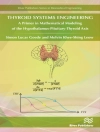Unlike the cornea or lens, the retina is part of the central nervous system and cannot be replaced. Therefore degeneration of the outer retina is blinding, but trials using devices such as retinal implants which combine biology with technology are showing promise at restoring vision. Macular diseases are the most common cause of blindness in the developed countries. Oedema of the macula may arise in the retina, such as in diabetes mellitus or in epiretinal membrane formation, but most importantly it is age-related insufficiency of the underlying retinal pigment epithelial cell that causes central scotoma.
This volume on vitreoretinal surgery is written by authors who are leaders in these fields of research. It covers the large body of experimental research performed to date on the most urgent clinical problems of vitreoretinal disease. Topics dealt with in the book include:
Methods against etinal Exudation by Thermal Laser
Replacement of the Diseased Retinal Pigment Epithelial (RPE) Cell
Secondary Wound Healing after Retinal Attachment (Proliferative Vitreoretinopathy, PVR)
Adjunct Pharmacotherapy
Heavier than Water Vitreous Substitutes
Conditions Associated with a High Risk of PVR (e.g. Giant Tear Retinal Detachments)
Uveitis Vitrectomy with New Diagnostic and Therapeutic Means
Tabla de materias
Retinal Implants.- Therapeutic Approaches to Macular Oedema.- Is There Room for Improvement in Pucker Surgery?.- Is There Sufficient Evidence to Support Transpupillary Thermotherapy for Age-Related Macular Degeneration?.- Retinal Pigment Epithelium and Choroid Translocation in Patients with Exudative Age-Related Macular Degeneration.- Giant Retinal Tear.- Retinal Pigment Epithelium Differentiation and Dedifferentiation.- Risk Factors in Proliferative Vitreoretinopathy.- Prevention of Proliferative Vitreoretinopathy.- The Tamponade Effect.- Vitreous Surgery in Uveitis and Allied Disorders.












